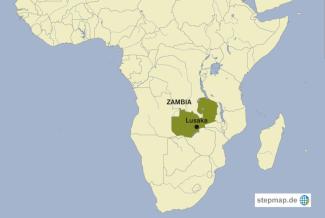Teenage pregnancies
Schoolgirl mothers

According to figures form Zambia’s Ministry of Education, 16,376 schoolgirls got pregnant in 2014. The number for 2013 was 14,938. The data for 2015 have not been published, but are expected to be similar. The official statistics, however, refer only to girls who go to school. The real figures for teenage pregnancies are higher.
Teenage pregnancies are not a phenomenon that only concerns lower classes. Recently, the 17-year-old son of a former minister of defence was arrested for murdering his pregnant girlfriend. When the girl informed the boy that she was expecting his child, the boy took his father’s gun and shot her. Police have since charged him for murder.
This is an extreme and high-profile case. Many other people struggle to manage unwanted pregnancies in very difficult conditions. The Zambian newspaper “Daily Nation” recently reported the case of a 15-year-old girl in a rural area of Luapula Province. At that tender age, she was already married and had two children.
According to Zambian law, a girl under the age of 16 cannot give consent to sex. Male partners can be charged with defilement, as sexual abuse is called. That rarely happens however.
Having babies too early has serious consequences. Mubiana Inambao, head of obstetrics and gynaecology at Ndola Central Hospital, says that young pregnant girls do not only risk social marginalisation, but also medical and psychological complications. According to him, when “having unprotected sex, both girls and boys can contract HIV/AIDS or sexually transmitted diseases”.
He adds that a girl’s body is “not fully developed before she reaches the age of 18”. Common complications include “continuous bleeding or obstructed labour due to narrow birth canals and infections from unsafe abortions”.
A terrible damage is the so-called “obstetric fistula”, which is a hole between the vagina and rectum or bladder caused by prolonged, obstructed labour. The vagina often tears when a pregnant teenager is giving birth. That has serious long-term implications, leaving women incontinent of urine or faeces or both.
On top of this, young girls may not be psychologically prepared for the task of being a mother. The Zambian education system allows girls to go back to school after they give birth, but their school performance often suffers. Teenage pregnancies are not accepted socially, so underage mothers are stigmatised.
Humphrey Nkonde is a journalist and lives in Ndola, Zambia.
zpeopleandplaces@gmail.com













